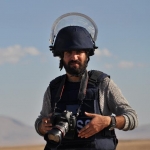A mirror on reality
TABQA - The first thing I do when I come home from covering the front in Syria is go to my sister’s house to play with my one-year-old nephew Jan. After bearing witness to so much misery, I feel happy being around him. But sometimes when I look at him -- smiling and laughing, well-fed, well-loved and safe -- the images of the kids I photographed in the conflict come back to haunt me. Barefoot children, covered in dust, their faces sad, putting up their hands to protect their eyes from the sandstorms. And I cringe in pain.
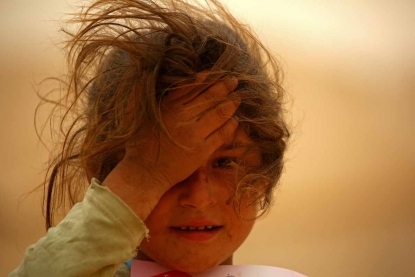 (AFP / Delil Souleiman)
(AFP / Delil Souleiman)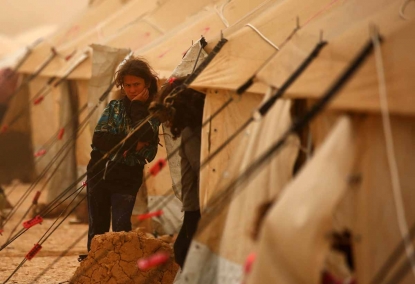 (AFP / Delil Souleiman)
(AFP / Delil Souleiman)
Children are a mirror on reality, be it painful or happy. They alone are capable of conveying reality without trickery, or lies, or falsification. They really are a mirror that just reflects everything as it is.
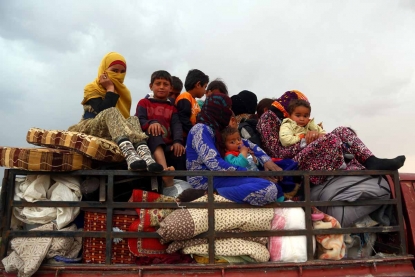 (AFP / Delil Souleiman)
(AFP / Delil Souleiman)Children can’t help but be spontaneous and real, and I suppose that’s why pictures of them are more powerful, whatever the topic, whatever the place. Especially in war. After all, children are the innocents of war and through them we can show all of war’s horrors.
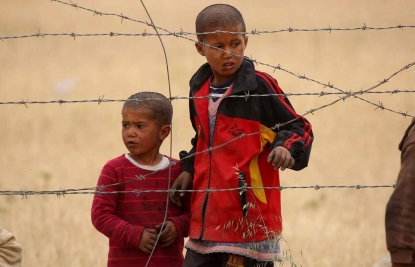 (AFP / Delil Souleiman)
(AFP / Delil Souleiman)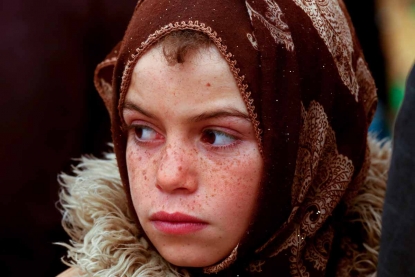 (AFP / Delil Souleiman)
(AFP / Delil Souleiman)
To me, children are the ones most affected by the scourge of the war in Syria. It has not only shaken their psyche and destroyed their security. But they also see how the war has affected the adults in their lives, their anxiety and suffering, and these effects will continue well into adulthood and beyond.
It’s partly for these reasons that I keep my focus on children.
 (AFP / Delil Souleiman)
(AFP / Delil Souleiman)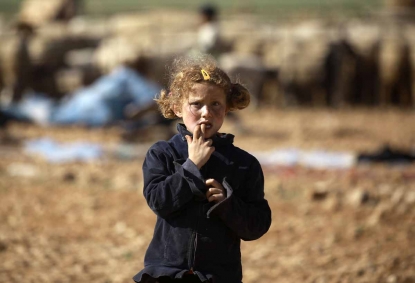 (AFP / Delil Souleiman)
(AFP / Delil Souleiman)
Most of the time photographing kids is easy. But there are some who are afraid of the big lenses. To put them at ease, I give them the camera to let them take pictures of their family and friends. When I photograph them, I always let them see the pictures after and it makes them happy and they often ask me to take another. My wife helps me in this respect. She does research on the effects of war on children and we often discuss the best ways to approach the kids whom I meet in the conflict areas. We talk about this issue often; it’s one of the many things that keeps us close.
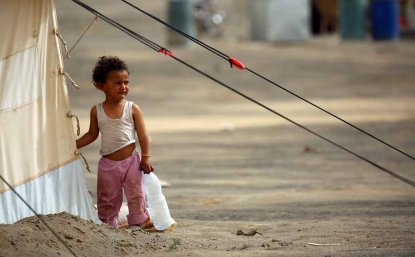 (AFP / Delil Souleiman)
(AFP / Delil Souleiman) (AFP / Delil Souleiman)
(AFP / Delil Souleiman)
Communicating with children makes me happier than communicating with adults, because adults can hide things, whereas children are completely spontaneous. I suppose that’s part of their magic.
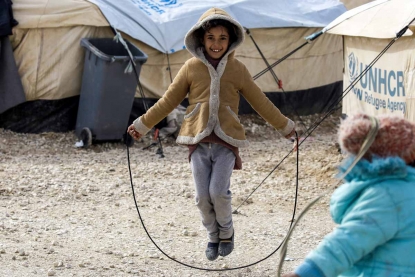 (AFP / Delil Souleiman)
(AFP / Delil Souleiman)I have photographed so much misery and pain, but I am still affected by the scenes I see through my lens. Especially the kids. Sometimes it brings tears to my eyes, especially because the misery and pain has become so common for them.
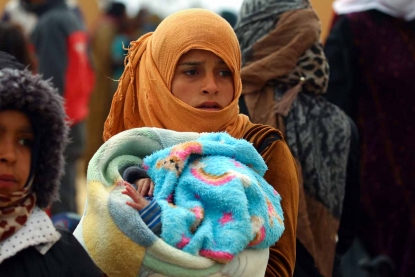 (AFP / Delil Souleiman)
(AFP / Delil Souleiman)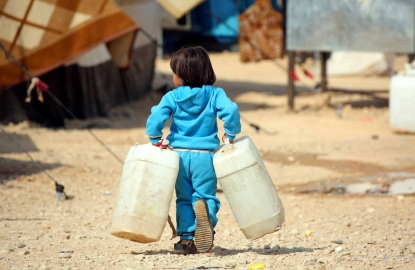 (AFP / Delil Souleiman)
(AFP / Delil Souleiman)
Sometimes when I see a picture in my viewfinder, I feel a tingle just before pressing the shutter release because I know the picture will have a big impact. I don’t have kids of my own yet and I often wonder what their fate would be like in this region, which has witnessed so many conflicts and blood. When I think about this, it always makes me anxious.
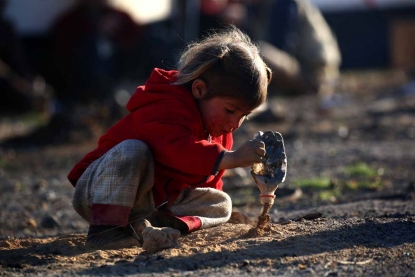 (AFP / Delil Souleiman)
(AFP / Delil Souleiman)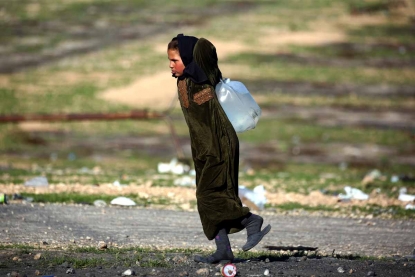 (AFP / Delil Souleiman)
(AFP / Delil Souleiman)
I think when people see pictures of children suffering in Syria, it affects them more than those of adults. Well, some of them. Those who are responsible for this war and those who benefit from it certainly don’t care one way or another. But those people who are more human, they have to be affected, because every family has children and when they compare their children to the ones in Syria they can’t help but be touched.
I remember one of my fellow journalists who came here to cover the conflict told me, “You really become affected once you become a father yourself. Only then do you begin to understand how painful it must be to see your child dying, or getting killed in an explosion, or living in a refugee camp.”
There are so many pictures that I have taken that have stayed with me. A child standing next to his mother and crying as they wait to receive aid.
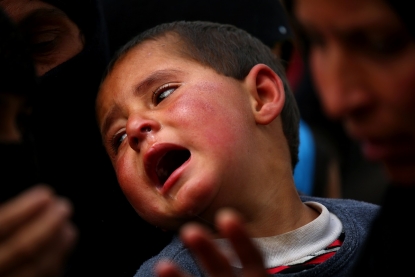 (AFP / Delil Souleiman)
(AFP / Delil Souleiman)Or a naked child running through the refugee camp, barefoot, because he can’t stay too long on the soil that has become scorching because of the heat and the sun. Or another crying as his mother tells me that he hasn’t eaten in three days because her milk has dried up since she too hasn’t had enough to eat. And so many others. There is one I took recently, of a little boy, that affected me really deeply.
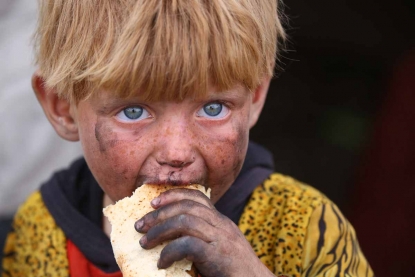 (AFP / Delil Souleiman)
(AFP / Delil Souleiman)Sometimes I witness things that give me hope. Like a while ago in the Ain Issa camp, when I saw a truck that had just come in from Raqa. Dust covered the faces of all those on board. And as soon as the kids got off, two of them started playing with a spinning top, a toy that was once quite popular, but that we’ve stopped seeing as the Internet and video games have spread to our corner of the world.
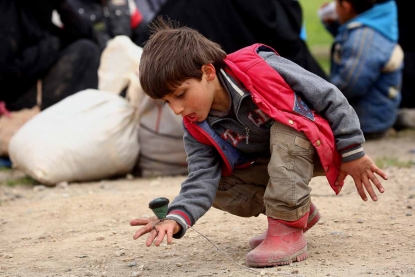 (AFP / Delil Souleiman)
(AFP / Delil Souleiman)But it’s harder to remember the joyful pictures, because there are so many more painful ones and the painful ones stay with you more. The images of joy and hope fade away. Even at weddings and other occasions that are supposed to be places of joy, there are guns fired to express happiness. And that forces children to be afraid even at weddings.
As Syria descends further and further into chaos, it is crushing the hopes of children, destroying their future in so many ways -- educational, social and psychological. The conflict in Syria affects life here on all levels including, for me, having children. You just don’t know what kind of a future they’ll face.
This blog was written with Yana Dlugy in Paris and Amir Makar in Nicosia.
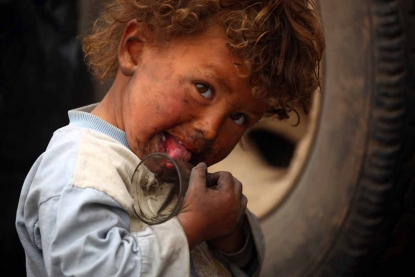 (AFP / Delil Souleiman)
(AFP / Delil Souleiman)






